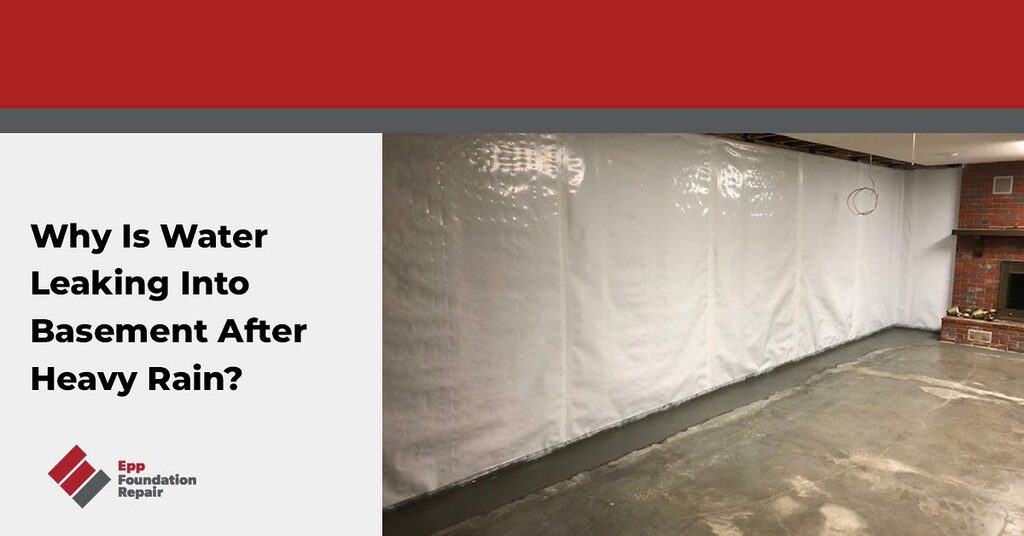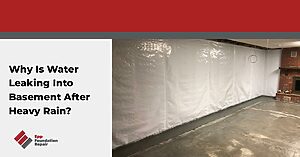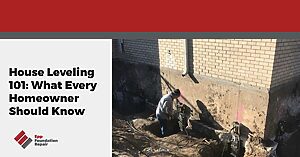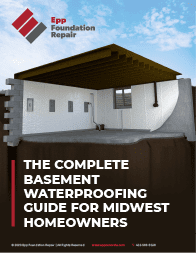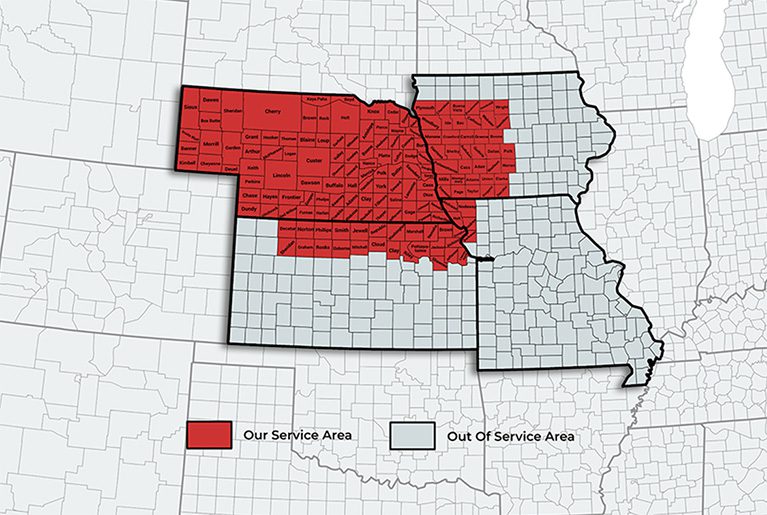Discovering water leaking into your basement after a heavy rainstorm is something no homeowner wants to experience—but ignoring this issue will certainly not resolve it. Instead, it is best to address water in your basement as soon as possible. The first step in that process is to learn the main reasons why water might get into your basement after heavy rain.
7 Reasons Why You Have Water Leaking into Your Basement After Heavy Rain
Water in your basement can result from many different causes, but if you notice this issue occurring most often just after a rainstorm, we can likely narrow it down to a few potential causes. Below are the seven most common reasons why you might experience water leaking into your basement after heavy rain events.
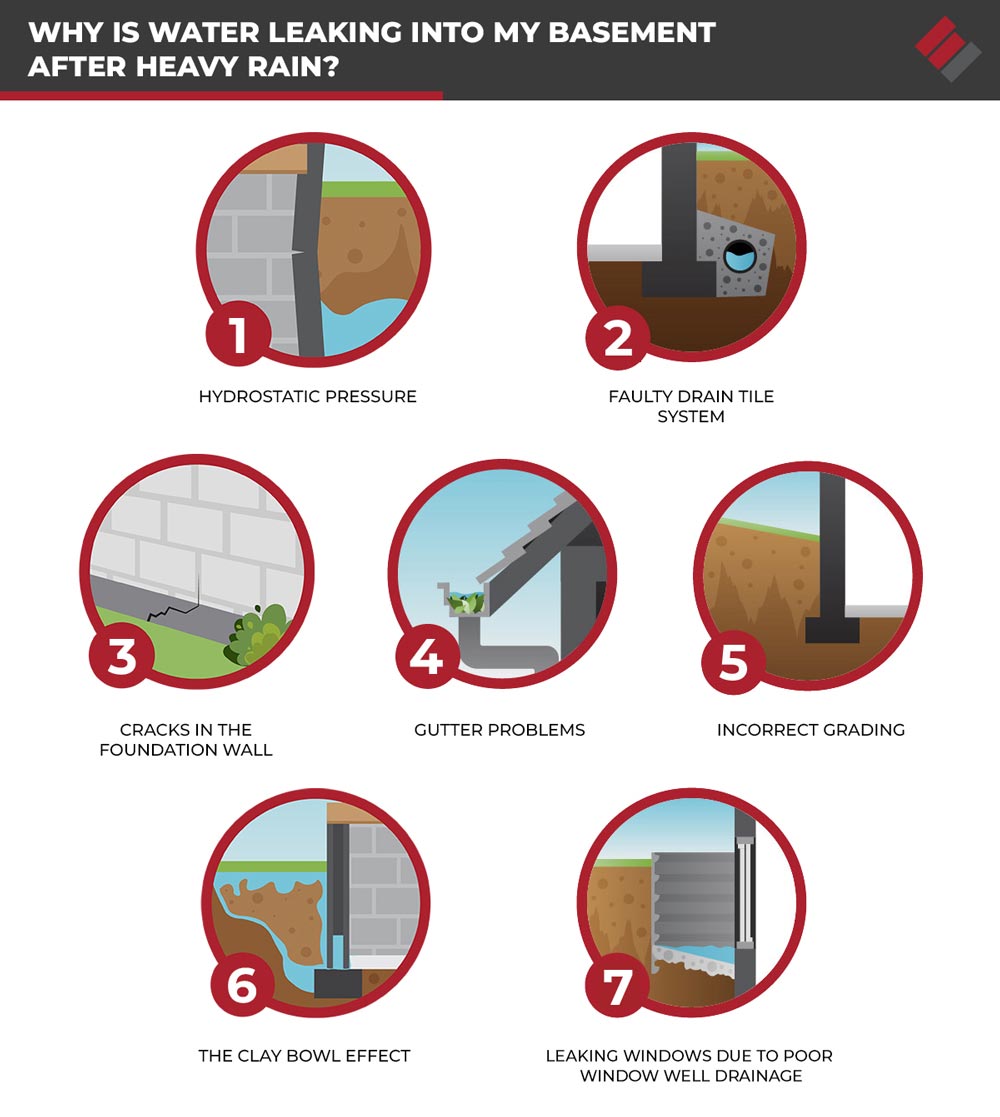
Hydrostatic Pressure
The first reason why water might leak into your basement when it rains is a build-up of hydrostatic pressure. In simple terms, hydrostatic pressure is nothing more than pressure exerted by a fluid against the surfaces it touches. In this case, the fluid in question is rainwater that soaks into the ground around your foundation.
When it rains, the soil around your house becomes saturated with rainwater. The weight of that waterlogged soil then places pressure on the outside of your home’s foundation—and when that pressure reaches a certain threshold, the water will begin seeping through the walls of your foundation and enter into your basement.
Ideally, the builders who constructed your foundation will have implemented measures to prevent excessive build-ups of hydrostatic pressure. However, if those measures fail (or were not even installed in the first place), hydrostatic pressure can cause significant damage to your foundation over time.
Faulty Drain Tile System
A well-constructed foundation should include a drain tile to help convey groundwater away from your home. A drain tile is a commonly used system of sub-surface perforated pipes which collects rainwater that seeps into the ground, thus preventing it from entering your home.
The issue here is that a drain tile system can become compromised to the point that it is no longer effective. For example, if a portion of your drain tile becomes clogged or broken, it will likely fail to convey water away from your home the way it is meant to do.
Additionally, some drain tile systems include a sump pump that actively pumps water out of your basement. When you have a fault in your sump pump, don’t be surprised to find that you also have water in your basement after a heavy rainstorm.
Foundation Cracks
Here, we have arrived at the most intuitive cause of water leaking into your basement after heavy rain. Unsurprisingly, if your foundation has cracks in it, water will inevitably leak into your basement.
There are many different reasons why a foundation might crack. For instance, tree roots, unalleviated hydrostatic pressure, and your house settling over time can all result in foundation cracks. In some cases, poor construction practices can also cause a foundation to crack.
Regardless of the cause of your foundation crack, it will likely allow water to leak into your basement any time that it rains—making it vital to resolve foundation cracks as soon as you notice them.
Gutter Problems
The causes of water leaking into your basement we have covered so far all relate to issues below ground level. However, complications from above can also cause water to get into your basement when it rains.
For example, if your gutters and downspouts are not operating correctly, this can result in water accumulating near your foundation, which will eventually work its way inside your basement over time.
While many people tend to take their gutters and downspouts for granted, these features play a critical role in conveying water away from your house when it rains. When your gutters fail to fulfill that key role, finding water in your basement becomes all too probable.
Incorrect Grading
The next potential reason why you may find water in your basement after it rains has to do with the grading around your house. Ideally, the ground that directly surrounds your home should have a distinct slope away from your house. For more information check our post about – landscaping next to house foundation.
If the land around your home is level, slopes towards your house, or is not sloped away to a sufficient degree, then the rainwater that lands on it will not flow away from your foundation. Instead, it will pool and seep down towards your basement.
When you notice water in your basement, it is an excellent idea to evaluate the grade around your house. The construction team that built your home should have graded the land away from it—but if you find out that that is not the case, you should hire a contractor as soon as possible to regrade your landscape before water has the chance to enter your basement and become a major problem.
The Clay Bowl Effect
The “clay bowl effect” is another common cause of water leaking into your basement after heavy rain. To understand this phenomenon, you need to think back to the initial construction of your house and its foundation.
To create a foundation, construction crews must excavate a large hole in which your foundation will sit. Once built, your foundation will not fill the entire hole; rather, the construction team will fill the remaining area within the hole with soil (also known as “backfill,” in this context).
The problem with this is that the backfill is not as compact as the soil surrounding it. As a result, water can more readily fill the backfilled soil compared to the compacted soil around it, resulting in a bowl-like effect that traps water against your foundation. Due to the nature of hydrostatic pressure we mentioned earlier, this often leads to water entering your basement.
Leaking Windows
Our final common cause of water entering your basement after heavy rain is leaking windows. Despite being mainly underground, many basements feature windows or window wells letting natural light enter the space within.
Unfortunately, those windows can let in more than just natural light. When they suffer breaks or cracks, the windows attached to your basement can easily allow water to leak in.
The good news is that fixing a leaking window is far more straightforward than resolving some of the other causes of leaks we’ve mentioned so far. So, next time you notice water in your basement, make sure to check your windows to see if you can make a quick fix to solve the problem.
For more information, see how to keep water away from house foundation.
Dangers of Having Water in Your Basement
By now, you have a clear understanding of the reasons why water can enter your basement after a heavy rain event. However, it is also important for us to emphasize the reasons why having water in your basement is so detrimental. As you’ll see in the sections below, water leaking into your basement can be both frustrating and extremely costly.
Water Damage to Stored Possessions
In most cases, a basement area serves as a primary storage location for homeowners. Sadly, this also means that if you allow water to leak into your basement, your possessions may become damaged beyond repair. If you are among those who store valuable or delicate items in your basement, you need to ensure that your foundation is able to keep water out so that you can guarantee their safety over the long term.
Build-Ups of Mold and Mildew
Since they are underground, basements tend to be a bit damper than the rest of your home. That dampness encourages the growth of mold and mildew, both of which can work to exacerbate allergies and even lead to structural damage as they spread. While many basements are already moist, the presence of rainwater makes it even easier for mold and mildew to spread.
Structural Decay
At first, a small amount of water in your basement after it rains may not seem like a threat to the structural integrity of your home—but nothing could be further from the truth. Ongoing leaks continually weaken your foundation, and may be a sign that your foundation has already been damaged. Addressing leaks immediately is the surest way to help reduce structural damage and avoid expensive repairs.
What to Do if You Have Water in Your Basement After Heavy Rain
When you find that water is leaking into your basement after heavy rain, one of the wisest actions you can take is to consult a professional company that specializes in foundations. At EPP Foundation Repair, we have the skills and experience you need to successfully resolve basement water leaks. Thanks to our basement waterproofing services, you can rest assured that water in your basement will no longer be a problem for your home. The top cities we serve are Lincoln, Omaha, Grand Island, Kearney, Norfolk, and many more; contact us today for a free estimate.

